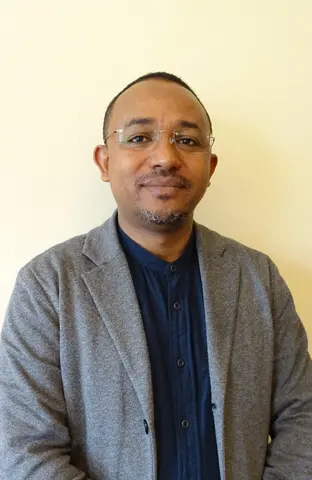
Historical Sources, Oral Traditions, and Interpretations on the Period of Ras Sïḥul Mika’el, 1692-1780
The life and career of Ras Sïḥul Mikaʾél and the administrative history of his homeland province, Tigray, is one of the least understood periods in 18th century Ethiopian history. This is because the Ras has lived and ruled since the beginning of the period, which ushered Ethiopia into a long period of provincial and sectarian divisions between different provincial and religious leaders. The problem further gains strength owing to the dearth of materials on the career of the Ras. Ras Sïḥul Mika’él and his presentation in the manuscripts as an individual figure with various titles such as Bïlatta Sïḥul Mikaʾél, during the tenure of ʾAndeHaymanot, Dejjazmač Sïḥul Mikaʾél, during the tenure of King Iyasu, Be’algada Ras Sïḥul Mikaʾél of Ïnderta, a title bestowed to him in the period after he defeated Dejjazmač Welde of Ïnderta in 1753 and Ras Sïḥul Mikaʾél a title which was given to him after he defeated Ras ʾAnde Haymanot in 1759 at the battle of Gaša Warqə near the town of ʿAddi Abun in ʾAdwa deserved further reexamination of sources to understand the period under discussion. Furthermore, Sïḥul Mikaʾél was also remembered in the surviving oral traditions as Riese Mekanint or Mekonen Tigray. Who is this man called Ras Sïḥul Mikaʾél? How did he emerged to have this much power not only in Tigray, his home region, but also in Gonder, the capital of the Solomonic Kings remained a puzzle. The history of historic Tigray, alternatively known as Tigray Proper, during the tenure of Ras Sïḥul Mikaʾél, was not properly addressed using local sources and oral traditions. Nevertheless, the period in which Ras Sïḥul Mikaʾél had ruled was an important period in Ethiopian history, for it covers transcending issues of religious skirmishes to the rise of the powerful provincial princely house which subsequently eroded the power of the King of Kings in Gonder. It also covers themes on commerce and territorialities. Besides, his tenure is with exemplary materials for the study of the administrative history of Tigray. Hence, systematic scrutiny and further analysis of the existing Ethiopic manuscripts and the corroboration of oral traditions will enable historians to reconstruct the socioeconomic conditions of Ethiopia before the beginning of the Era of Princes with Ras Sïḥul Mikaʾél and his home region at the center of the discussion. Apart from finding a solution to the aforementioned points, the Ethiopic manuscripts covering intra-palace royal historiography and princely histories offer a unique insight for historians into Ras Sïḥul Mikaʾél’s thinking on territory and territorialities, politics and governance in their own context.
Social History of Ethiopia and the Slave Trade, in: Volker-Saad, Kerstin (Hg.), Birilele & Pückler. Der Mythos von Machbuba, Bad Muskau (Im Erscheinen).
Historical Sources, Oral Traditions, and Interpretations on the Period of Ras Sihul Mika'el, 1692–1780, (Im Erscheinen).
Milash as a Boder-Making Concept in the Setting of the Geohistory of Northern Ethiopia. The Case of Mereb-Milash, in: Mapping Africa and Asia, 2024. Online hier verfügbar
Cartographic Representation of Tigray in about the Period of Ras Sïḥul Mikaʾél, Orbis Aethiopicus, Orbis Aethiopicus 22, 28th September 2024, Gotha, Germany.
Salvaged Propaganda Tools from the Derg Era in the War on Tigray, Workshop: War Time. Communication in Ethiopia, 12th July 2024, Ludwig-Maximilians-Universität München, Germany.
The Battle of Fagta: Bruce’s Itinerary line and the Campaigns of King Tekle Haymanot II in Ethiopien d’Abbadie 153, Abbadia Workshop on Ethnohistorical Research for Gerda Henkel Scholarship Holders, 20th April 2024, Château d’Abbadia, Hendaye, France.
Oral Biography of Ras Sïḥul Mikaʾél, Annual Meeting of the Trans Area Network Africa of the German Archeological Institute, 23rd November 2023, Centre for Transcultural Studies, Gotha, Germany.
Colonial Maps on the Bench, Local Concepts of Territory and Territoriality: The Case of 20th Century Northern Ethiopia, ASEN’s XXXIth Annual Conference on Nationalism and Media, 5th–7th April 2022, Antwerp, Belgium.
Revisiting the Battle of Adowa: A Photographic Evidence to the Environmental and Military History of the Battlefield Sites, 10th International Conference on the History of Arts and Architectures in Ethiopia, 30th November–4th December 2015, Mekelle University, Tigray, Ethiopia.
Change and Continuity in the Structural Themes and Calligraphic Representation of the Concept of Millennialism among Ethiopic Paintings in Aksum, 4th Enno Littman Conference, 31st March–5th April 2014, Tübingen, Germany.
December 2023–December 2024
PhD Scholarship funded by the Gerda Henkel Foundation as part of the Funding Program for Scholars at Risk
Centre for Transcultural Studies, Gotha
December 2021–November 2023
PhD Scholarship funded by the Gerda Henkel Foundation as part of the German-Ethiopian Scholarship Initiative
Centre for Transcultural Studies, Gotha
June 2021–November 2021
Herzog-Ernst-Fellowship funded by the Ernst Abbe Stiftung
Centre for Transcultural Studies, Gotha